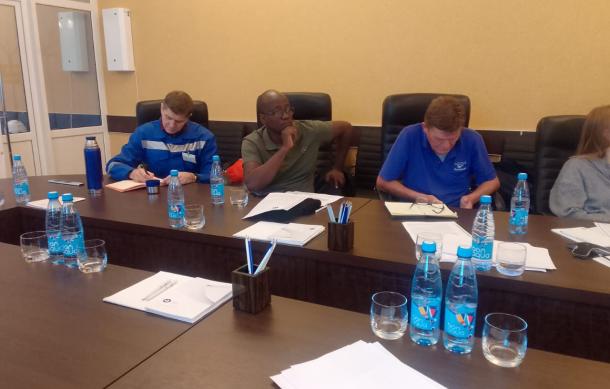
There are twenty-eight mines around the world using In-Situ Leaching recovery for Uranium.
According to the International Atomic Energy Agency, In-Situ Leaching (ISL) has been proven around the world to be the most environmentally friendly method in the recovery of Uranium. The information was shared with representatives of the Namibian media who have been invited to Russia by the Russian State-owned nuclear power enterprise Rosatom.
Rosatom, took Namibian media to one of its Uranium mines Dalur, the first company in Russia that mines Uranium using the ISL method.
Head of Corporate Communications of Mining at Rosatom Dr Ivan Krupyanko says the mine has taken into account possible concerns raised by environmental activists and community members. The mine he says has taken every precaution and has addressed these concerns.
A major concern is the possible contamination of underground water sources. Krupyanko however reassured the media that an environmentally friendly chemical called 'Bentonite' is used to prevent any possible leakage.
Krupyanko was quoted saying: "The generated waste during the construction and operation of the facility will be transferred for recycling or disposal to specialized organizations that have a license for handling this type of waste"
During the two-day AtomExpo which concluded on Tuesday in Sochi, Russia, Director General of Uranium One, Andrey Shutov, highlighted that activists in Namibia have a 'fear of the unknown and explained that those against the exploration and possible mining of Uranium through the ISL method base their arguments with no substantial evidence.
Uranium One Group, a subsidiary of Rosatom is exploring for Uranium in the Leonardvile area of the Omaheke region. The company has since received backlash from some community members.
The company has to date spent over N$50 million during the exploration stage and promises an investment of over U$500 million in the country.





